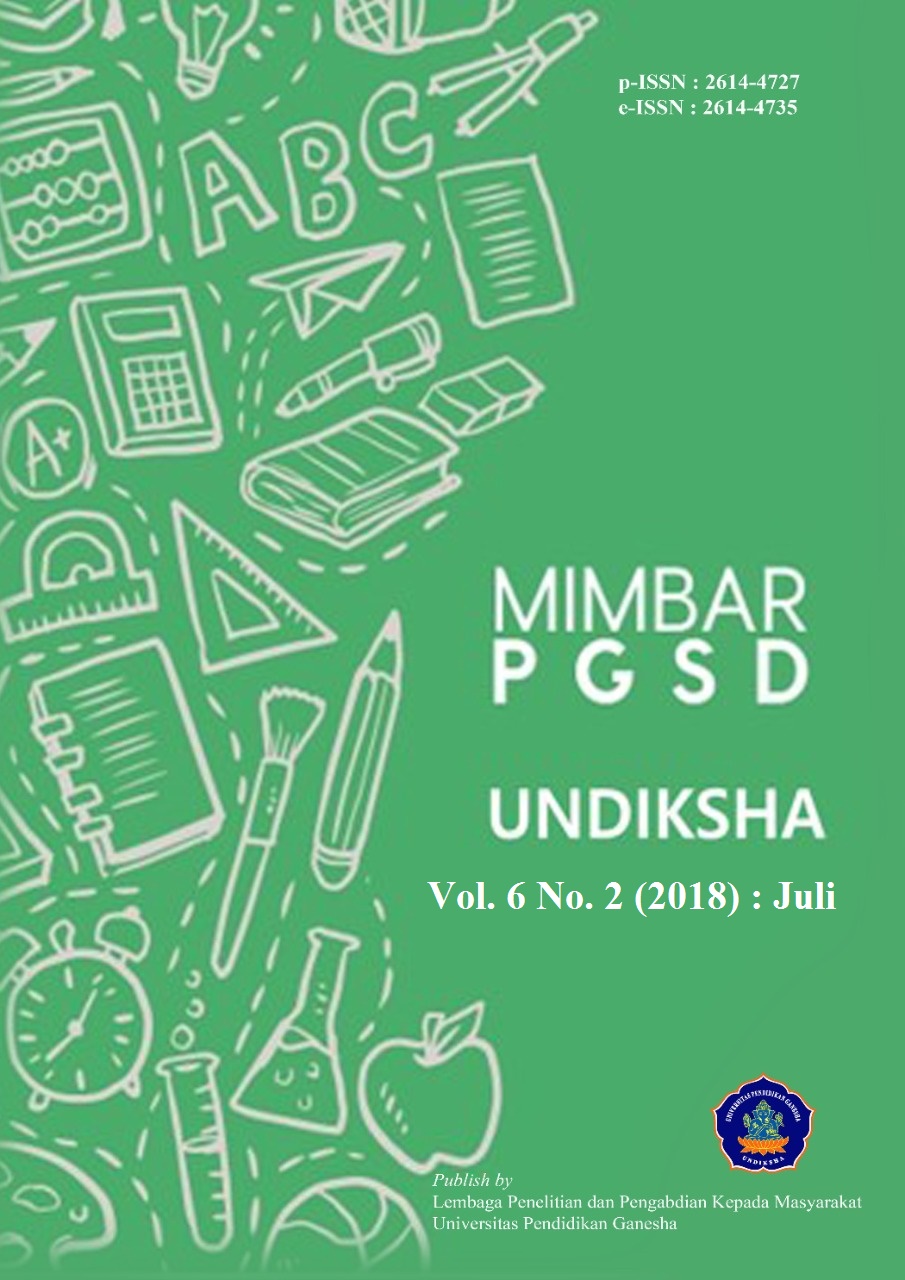Pengaruh Model Social Learning terhadap Hasil Belajar IPS
DOI:
https://doi.org/10.23887/jjpgsd.v6i2.19469Abstract
Penelitian ini bertujuan untuk mengetahui pengaruh Model Social Learning terhadap hasil belajar IPS siswa kelas V semester II Gugus XV Kecamatan Buleleng Kabupaten Buleleng Tahun Pelajaran 2017/2018. Penelitian ini adalah penelitian eksperimen semu (quasi eksperiment) dengan rancangan penelitian post-test only control group desain. Populasi penelitian adalah seluruh kelas V SD di Gugus XV Kecamatan Buleleng. Sampel penelitian adalah SD Negeri 1 Anturan sebagai kelompok eksperimen dan SD Negeri 3 Kalibukbuk sebagai kelompok kontrol. Metode pengumpulan data menggunakan metode tes dengan instrumen tes hasil belajar IPS. Analisis data dilakukan dengan uji-t Bruning menggunakan bantuan Microsoft excel. Hasilnya adalah thitung 21,75 lebih besar dari ttabel 2,074, hasil efektivitas size (ES) kelompok eksperimen lebih besar yaitu 4,57 sedangkan efektivitas size (ES) kelompok kelompok kontrol yaitu 0,51. Dengan demikian dapat diinterpretasikan bahwa model Social Learning berpengaruh terhadap hasil belajar IPS pada siswa kelas V di Gugus XV Kecamatan Buleleng Kabupaten Buleleng.
Kata kunci: Social Learning, Hasil Belajar, IPS
Downloads
Published
How to Cite
Issue
Section
License
Authors who publish with the Mimbar PGSD Undiksha agree to the following terms:
- Authors retain copyright and grant the journal the right of first publication with the work simultaneously licensed under a Creative Commons Attribution License (CC BY-SA 4.0) that allows others to share the work with an acknowledgment of the work's authorship and initial publication in this journal.
- Authors are able to enter into separate, additional contractual arrangements for the non-exclusive distribution of the journal's published version of the work (e.g., post it to an institutional repository or publish it in a book), with an acknowledgment of its initial publication in this journal.
- Authors are permitted and encouraged to post their work online (e.g., in institutional repositories or on their website) prior to and during the submission process, as it can lead to productive exchanges, as well as earlier and greater citation of published work. (See The Effect of Open Access)













